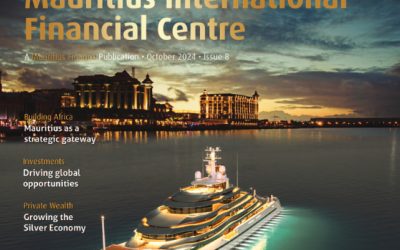The importance of Guanxi 关系, cultural appreciation and history – International wealth planning for Chinese nationals
“Cultural difference involves the integrated and maintained system of socially acquired values, beliefs, and rules of conduct which impact the range of accepted behaviours distinguishable from one societal group to another” (N.J Adler, 1997).
Establishing relationships with Chinese resident clients is, in some ways, no different to establishing a relationship with clients from any other jurisdiction – it requires trust to be established, a relationship to be built, a deep understanding of the client (and likely their family) and a structure to be proposed and implemented – but yet this, by itself, is not enough.
If each of those elements were, by analogy, a numbered dial on a coded padlock, you would not be able to just enter the correct code to open the lock. You would need to truly understand how to move the dials, the order in which in any dial should be moved and appreciate how the code has changed over time.
In summary – to understand Chinese culture, one must have an appreciation of the ancient, a mastery of the political and an awareness of the vast variations present across China in terms of the customs and traditions that underpin Chinese society today.
Set out below are a few key introductory points to bear in mind when trying to establish relationships with Chinese clients and in providing them with wealth structuring solutions. This is not an exhaustive list nor is it a one size fits all approach. In reality this article barely scratches the surface but should at least provide a foundation level of knowledge that can be built upon over time.
1. Do not chose the one you do not trust but trust the one you chose (用人不疑,疑人不用)
A conversation about wealth is not something which would ordinarily not take place on the first meeting with a Chinese client. Even if they have agreed to the meeting, the likelihood is that they are being polite and have no intention of sharing any details about their wealth or their specific family circumstances. Similarly, it is unlikely that this would happen in subsequent meetings potentially for several months.
The reason – trust is earnt (often over many years) with the need to develop Guanxi with the individual central to any future relationship before business is discussed. Originating from Confucianism, Guanxi translates as personal connections, relationships or social networks. It implies trust and mutual obligations between parties, and it operates on personal, familial, social, business and political levels.
2. Filial Piety and the Generational Gap
With 3 million entrepreneurs due to retire in the next 10 years, a huge generational wealth transfer is starting to take place within Chinese families. But it is showing signs of stalling before it has begun. The reason – the role of the family elders to whom deference is required and unchallenged respect due from a Chinese cultural perspective. It has been that way for thousands of years. The issue – the next generation often have no desire to carry on the family business or have divergent views on where to take it (often seeking to break it up and start again).
There is a Chinese saying that wealth does not last beyond three generations. The tensions that this causes within family dynamics are significant with the reluctance of the elders to give up control an additional complicating factor. Keeping family disputes private is key and any structuring should look to expressly address with conflict resolution and appropriate arbitration considerations required. Understanding the tension is the starting point.
3. Control
Giving up control of assets is perhaps the biggest challenge for Chinese clients. This is explicitly linked to Guanxi. Reserving powers is common place in structures, with powers regarding investment, appointment and removal of trustees and appointment of assets very much the standard approach taken when structuring is considered. Care is required that the extent of the powers is not such that there is a risk that it can be argued that they are in control of the assets themselves.
Private Trust Companies have become a bit of a favourite for those undertaking structuring for Chinese individuals and care should be taken as the requirements for these vary by jurisdiction. Traditionally the Cayman Islands and the British Virgin Islands were the destination of choice but this has diminished over time.
4. Tax
China has no estate, inheritance, gift or any other taxes imposed on the death of an individual. There has been some discussion about introducing an inheritance tax or gift tax, but following amendment to its Individual Income Tax Law (IITL) in 2019, a deemed disposal will include transactions for non-cash consideration including transfers by way of a gift or repayment of a debt or investment. This is important as it is often the case that settlors will provide assets for a trust by way of gift (which following 1 January 2019 will be the subject of tax under the IITL at 20%). Care should be taken when looking to settle assets into trust.
5. China’s Trust Law
China enacted its own Trust Law in 2001. Whilst this is at first glance slightly odd, with a socialist, civil law jurisdiction adopting a common law concept supplemented by administrative regulations, it was the result of increased interaction with common law jurisdictions in trade, finance and investment.
It is also worth noting that China has a booming trust company industry comprising of single investor and collective investor trusts. However it bears no resemblance to western concepts of trust business (despite this being the initial intention). Single investor trusts were largely used by commercial banks to provide unofficial lending in the shadow of the state system. Common investor trusts provided fixed rates of return for pooled investments (effectively they act as fixed income products).
Why does this matter? Well, whilst the Trust Law looks (to an extent) like a common law piece of legislation, proper trust practice has not yet been installed into day to day trust company business. The law itself is deficient in certain aspects which have allowed abuses of it to take place. Society has become sceptical of the concept of a trust as a result, notwithstanding they have not really experienced a “proper Trust Law” being implemented due to switching fiscal and regulatory priorities associated with Chinese policy.
6. Common Prosperity (共同富裕)
President Xi Jinping has reintroduced a concept that had not been uttered for decades in Mainland China – Common Prosperity. In short this policy seeks to ensure a more equal distribution of income in China. Whilst a simple concept, the implementation of this policy has involved a series of seismic interventions from the Chinese government (19 to date) including regulatory crackdowns, targeting of wealthy entrepreneurs and forcing property developers to deleverage. Rumours of additional taxation circulate regularly. The impact – the wealthy are looking for options to protect their wealth.
Final remarks
China is a complex mix of the political, cultural and financial. Appreciating this, understanding why things are as they are and if possible speaking some Mandarin all assist in building Guanxi. The potential to offer clients solutions is significant but the key to building client relationships won’t come solely from clever wealth structuring, it will come from an understanding of Chinese clients and their country.







